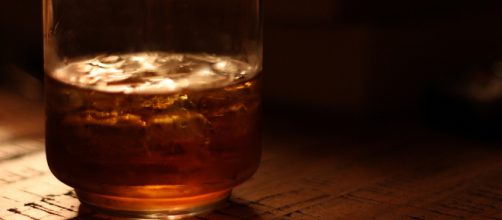For many decades, Alcoholics Anonymous and 12-step programs have been the first resort for persons struggling with Alcohol Dependence. These programs emphasize admitting powerlessness over alcohol, turning one's life over to God (or a Higher Power), and conducting an ongoing "moral inventory" which is sort of a perpetual examination of conscience. But a shift is occurring, rightfully, to more evidence-based means of recovery. The religious foundations of Alcoholics Anonymous are off-putting to many persons and more secular approaches to treatment are now emerging.
I'll cover this story in honor of Alcoholism Awareness Month.
Alcoholics Anonymous traces its origins to the religious Oxford Group
AA began in the Oxford Group, a religious movement founded by Frank Buchman that stressed reliance on God, confession of wrongs, and making amends. The early founders of Alcoholics Anonymous attended Oxford Group meetings and presumably used the principles they learned there to stop drinking. However, the Oxford Group was controversial in part because its Protestant affiliation prevented alcoholic Roman Catholics from participating and in part because founder Buchman pursued Germany's Fuhrer as a potential member of the group.
Though the Fuhrer was not amenable to participation in Buchman's rather non-genocidal group, Alcoholics Anonymous was not so much a rejection of Buchman's appeal to the Fuhrer as a spin-off from the Oxford Group which redefined itself as "spiritual but not religious," thus enabling interdenominational participation, and inclusion of Catholics.
But despite protestations among members that Alcoholics Anonymous is offered as merely one means of "spiritual" recovery, the actual approach can be somewhat religiously totalitarian and frightening to those with alcohol dependence who do not find themselves in sync with the Program.
There are such unfortunates
One striking passage from the Alcoholics Anonymous core text, commonly known as "The Big Book," sums up the program's insistence that it has a kind of religiously doctrinaire monopoly on recovery: "Rarely have we seen a person fail who has thoroughly followed our directions. Those who do not recover are people who cannot or will not completely give themselves to this simple program, usually men and women who are constitutionally incapable of being honest with themselves.
There are such unfortunates. They are not at fault; they seem to have been born that way. They are naturally incapable of grasping and developing a way of life which demands rigorous honesty."
But there is another method of recovery for those "born that way," and this method is increasingly in the public mind, especially after the publication of an article about it in The Atlantic. This is a method so effective that it may be removing the hold the Alcoholics Anonymous program has had on recovery.
Naltrexone is emerging as the miracle drug for those with alcohol dependence
Neuroscientist John David Sinclair discovered that the opioid blocker naltrexone, when taken an hour before consumption of alcohol, significantly reduces drinking among persons with alcohol dependence.
In fact, use of the "Sinclair Method" for treating alcoholism is said to be 80% effective in bringing about the extinction of the desire to drink, thus turning the notion of alcoholism as a chronic life-long illness that can only be treated "spiritually" on its head. The Alcoholics Anonymous program is not quite the biggest fan of Sinclair's discovery, but at the very least science has now offered a pathway to health for those "unfortunates" for whom a spiritual program of recovery is not effective. Thank God.


